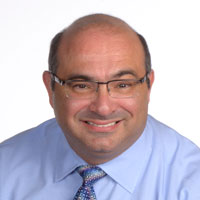PLEASE NOTE: THIS COURSE CAN NO LONGER BE TAKEN FOR CAT 1 CE POINTS. This course is available now for review by registered users to reprint their Certificates if needed.
Clinical dental practice is immersed in the primary treatment and corrective management of infectious diseases of the oral and peri-oral region. Dental practioners are faced daily with bacterial, fungal and viral infections. It has been estimated that 10% of all anti-infectives prescriptions are related with dental infections. All antimicrobial agents may cause adverse reactions of varying degrees of severity. Oral fungal infections can occur from alterations in oral flora as a result of the extensive use of broad spectrum antibiotics, steroids, chemotherapy, immunosuppression, and inadequate oral hygiene and nutrition. Understanding the interplay of host, microorganism, and antimicrobials fosters advances in therapeutic choices and delivery systems when treating oral diseases. Understanding the rational use of anti-infective agents in dentistry, both in terms of the management of existing orofacial infections and for prophylaxis against the development of bacterial endocarditis or other infection post treatment is crucial. In this lecture I will discuss the common antibiotics, antifungals and antivirals drugs used in the dental office. The common adverse Drug Reactions and Drug Interactions associated with these agents will be discussed. Also in this lecture we will review special topics such as Geriatrics, pregnancy, kidney failure and liver disease, all situations requiring special caution on the part of the clinician when indicating antibiotic treatment.
Learning Objectives:
- Recognize the prevalence of the various bacterial, fungal and viral infections in the daily dental practice.
- Understand the rational use of antiinfective agents in dentistry, both in terms of the management of existing orofacial infections and for prophylaxis against the development of bacterial endocarditis or other infection post treatment.
- Be informed as to potentially problematic adverse drug reactions and drug interactions arise between medications the patient may be taking for acute or chronic medical conditions and antimicrobial prescribed by the dental practionner.
- Understand the importance of organ function/disease status in altering the absorption, distribution, metabolism, and therapeutic action of dentally used antimicrobials and be able to appropriately modify usage and dosing of standard drugs or substitute alternative medications.

